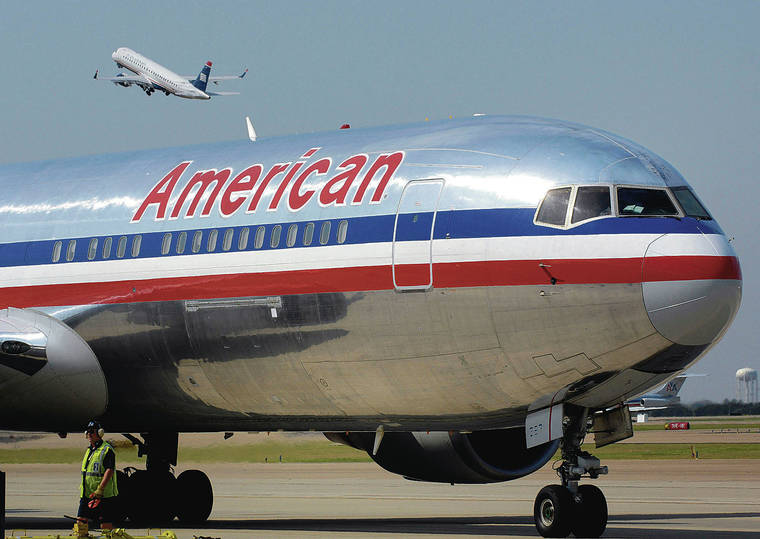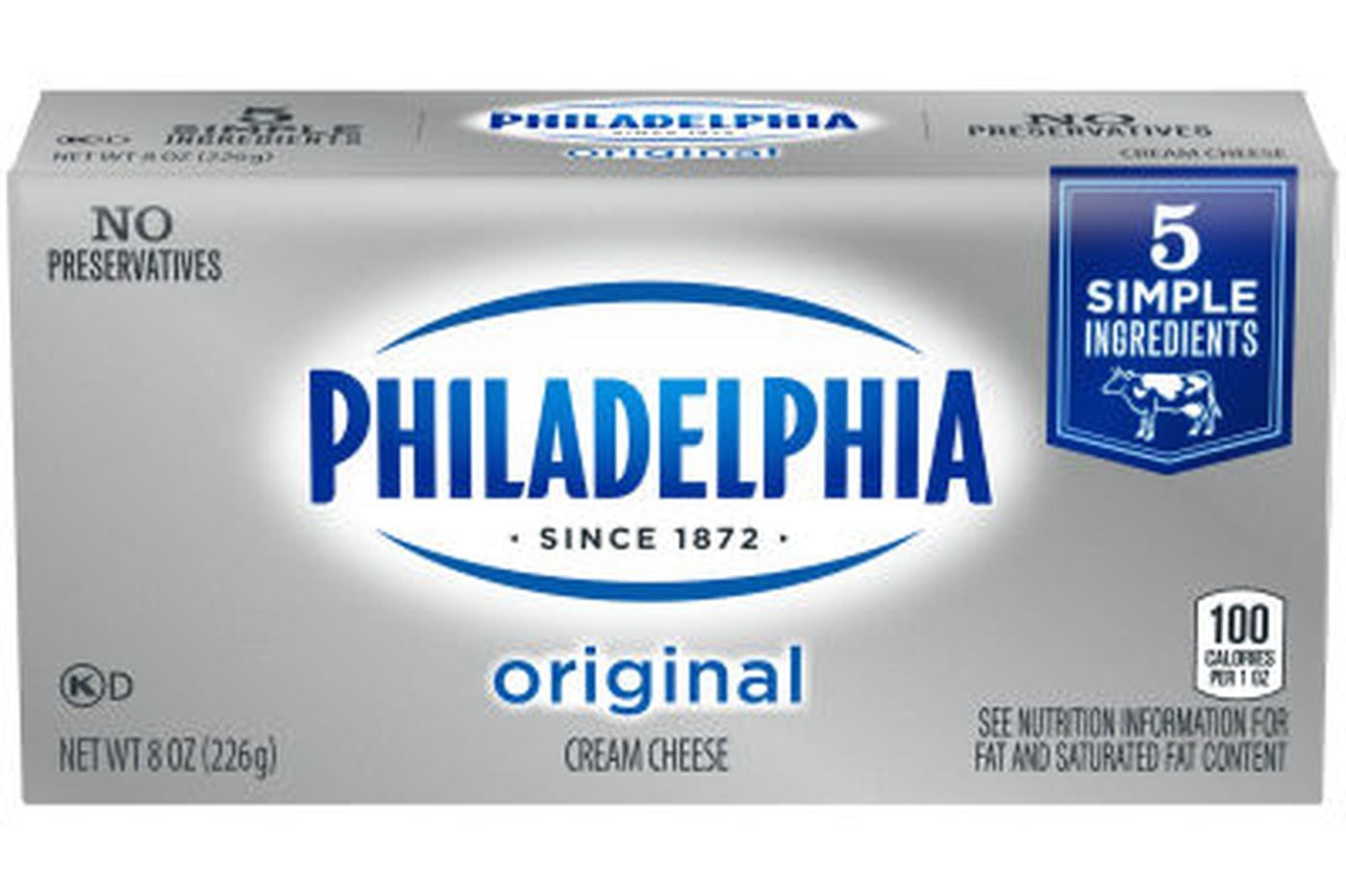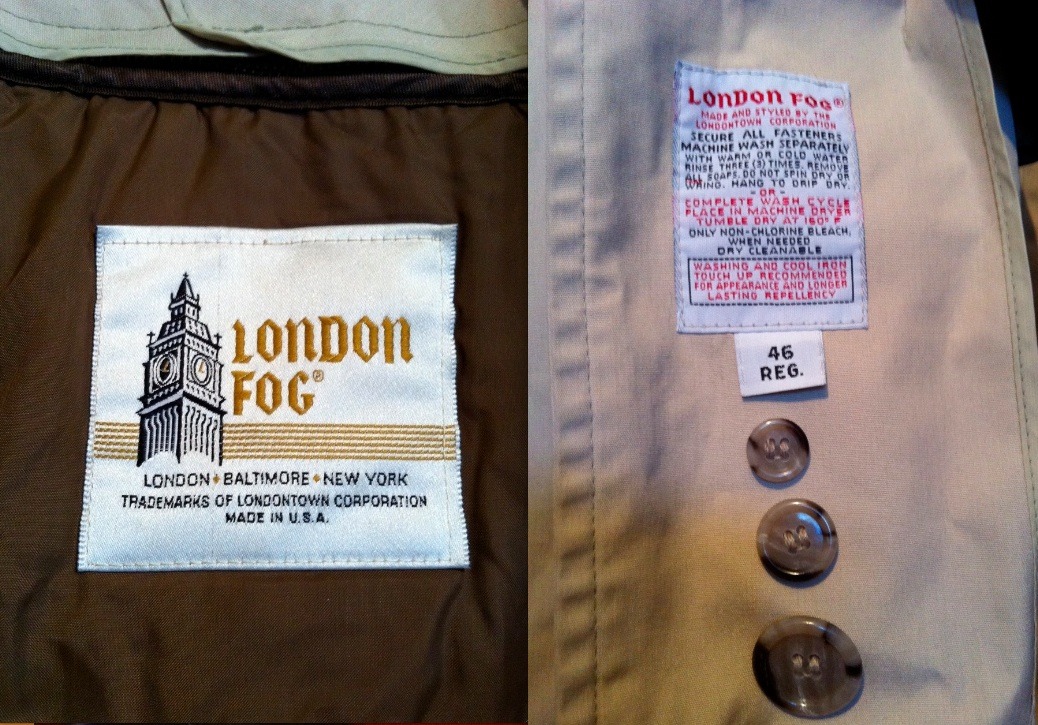srav
Established Member
- Impact
- 673


Sorry Mr. J.berry Hill , It seems my above question is not clearly asked . Sorry for my poor English .I have a great respect for you. I will try to ask more clearly . My query is




Thank You Mr. JberryHill for your time and elaborative answer. I personally don't own any Novi Domains . But i only had this doubt that why authorities allow geographical trademarks if the city or the place belongs to public at large and some private company owns this trademark for commercial purpose and restricts others from using this.And why people not objecting this .Generally speaking, trademarks are not monopolies in words.
You see this airplane:

What provider of air transportation operates that airplane?
On the side of that airplane, "American" is a trademark which indicates the brand of air transportation.
I can promise you that, as an reference to things located or originating from the American continents, "American" is still a perfectly descriptive geographical indication.
I don't know where you are located, so I can't provide examples relevant to where you live, but lets try this popular brand of cream cheese in the US:

That cream cheese was never made, and does not come from, the city of Philadelphia:

I think I understand your questions, but this is one of those situations where the questions are premised on several basic misunderstandings about trademarks which would be difficult to untangle.
In the case of, say, American Airlines, the phrase itself is geographically descriptive - they are American and they run an airline. But, since they've been doing it since 1939, everyone knows that "American Airlines" refers to a particular brand of airline, and that "American Airlines" is not a reference to United, Delta, Spirit, and so on.
In the case of something like "NOVI" as a branded payment system, the fact that there is some small town in Michigan called Novi (probably as well as places in Russia and elsewhere) is entirely irrelevant. It doesn't need to acquire distinctiveness because "NOVI" is not geographically descriptive of a branded payment system in the first place.
There are millions of place names in the world. I'm pretty sure a lot of trademarks match place names that have nothing to do with the trademark, and nobody every noticed or cared. I mean, good golly, "Amazon" is the name of a river, and a corresponding region in Brazil, but nobody thinks they are buying crap online from rain forest natives who are really good at delivering products.
Now, let's get to what you are really driving at here, because as is typical for Namepros, people seem to think that these questions are meant out of purely academic interest on a forum for domainers, if they pretend hard enough.
The original cybersquatting lawsuit - even before there were laws specifically about cybersquatting - was brought by the owner of the "PANAVISION" mark for cinematic technology against a guy who had registered "panavision.com" and wanted something like $13,000 from the trademark owner.
He thought he had a really clever idea. When he registered panavision.com, he set up a website which had pictures of the town of Pana, Illinois. "Pana" is an actual town in Illinois:
Show attachment 189056
...and so his website was for "Pana Vision" - pictures of things you can see in Pana.
Because, yeah, sure, some guy with no real interest or connection to the small town of Pana decided that it would be a wonderful idea to register the name of that town, and that town only, for a project to add "vision" to it, and post pictures of things you can see in Pana.
People have re-invented this stupid idea over and over again, because they have never gotten beyond the developmental stage of children who cover their faces with their hands, and then think no one can see them:

It is a human reflex that we are all born with. It remains a reflex into adulthood. It is why when people are embarrassed or shamed, even by someone else's behavior, they will go "hide" by putting a hand over their face in what we call a "facepalm".
That child thinks they are hiding, but we can all see that the child simply has their hands over their face.
Okay, so, how does that apply here.
I don't really keep up with Facebook nonsense, but I gather they have decided to develop some sort of wallet or payment system called "Novi".
So, you found out there is a town in Michigan called Novi, and you want to register things like "Novi-shopping.com", "Novi-merchants.com", and so on, and then say, "Oh, no, these have nothing to do with the Facebook payment system, these are about shopping, merchants, stores, banks and whatever else in Novi, Michigan!"
Long story short - it is a dumb idea, and nobody is going to believe it.
When people pull stunts like that, they never think they would get asked questions like "And what OTHER towns in Michigan have you done this for?" People are supposed to believe that after one of the largest internet-based companies on the planet started using "NOVI" as a mark for a service or product, that some guy just happened to take a sudden interest in a small town of 60k people in Michigan? Nonsense. This is one of those situations where "even if it is true, no one is going to believe you".
So, to summarize:
A. There is no problem with Facebook using "NOVI" as a trademark for an online payment system. That mark has nothing to do with the town of Novi, Michigan, and nobody would think that Facebook's online payment system originates from a town in Michigan. It is simply not geographically descriptive of Facebook's online payment system and does not need to acquire distinctiveness as a geographically descriptive mark.
B. Facebook having a trademark in "NOVI" for an online payment system does not prevent the use of "Novi" as a geographic reference to a town in Michigan, HOWEVER:
C. Some domain registrant who registers a bunch of "NOVI" domain names trying to pretend that he or she did so because they are geographically descriptive is going to get squashed like a bug. Nobody is going to believe that domain registrant, and it is going to work as well as the child trying to hide with their hands over their face.







Generally speaking, trademarks are not monopolies in words.
I think I understand your questions, but this is one of those situations where the questions are premised on several basic misunderstandings about trademarks which would be difficult to untangle.
A bunch of Amazonians who were really good at delivering things would be a great company. I'd buy from them just for the chance to do it even at a couple of $ more per delivery.

Here are some other US trademarks which comprise city names. Some of them are geographically descriptive, and have acquired distinctiveness, and some of them do not function as an indicator of geographic origin:






But there are also marks which are not even intended as a reference to a place - like NOVI - but there are only so many pronounceable words to go around.
"FORD" is the very well-known mark of a global automotive company. It is also:
United Kingdom
United States
- Ford, Argyll
- Ford, Buckinghamshire
- Ford, Derbyshire
- Ford, Devon, in the parish of Holbeton
- Ford, Gloucestershire
- Ford, Merseyside
- Ford, Northumberland
- Ford, Pembrokeshire
- Ford, Shropshire
- Ford, West Sussex
- Ford, North Wiltshire
- Ford, Salisbury, Wiltshire
All of the people and businesses in those places can certainly use the name of their town (provided they are not trying to pass themselves off as an auto company).
Now, if you want to get really weird with this....
What do you think should happen, when a town decides to re-name itself after a trademark, but then claim that the town can't be infringing, because it is now a geographic term?
Welcome to Rocky Top, Tennessee!
There was no town of Rocky Top. It was a fictional place name used in a song, which became enormously popular. Give it a listen:
So, there was an economically depressed town in Tennessee called "Coal Creek". In order to make the place sound more attractive, they changed the name to "Lake City".
That didn't work very well, but an amusement park developer convinced the town government that, despite various trademarks in "Rocky Top" associated with the owners of the song, if the town changed its name to "Rocky Top", then they could build a park, call it the "Rocky Top" amusement park, and avoid having to pay royalties because it would then be a geographically descriptive name!
And so they did:
https://en.wikipedia.org/wiki/Rocky_Top,_Tennessee

In 2013, a business group proposed to construct and operate a water park in the city if its name was changed to "Rocky Top" to take advantage of the song of the same name. On November 7, 2013, Lake City's city council voted to ask the Tennessee General Assembly to amend the city charter to adopt the proposed name. The House of Bryant, which owns the copyright to the song, as well as multiple trademarks and copyrights associated with it due to its status as the main University of Tennessee fight song, objected to the name change, asserting that it would violate intellectual property rights. On May 29, U.S. District Judge Thomas A. Varlan denied the House of Bryant's request for a preliminary injunction, holding that renaming the town was not likely to be deemed to be a use in commerce as required for trademark infringement.
On June 26, 2014, the name change was official after District Judge Varlan denied a last-minute attempt by House of Bryant to prevent the vote. House of Bryant appealed to the Sixth Circuit Court of Appeals.
------
The developers who pushed for the name change, were not as lucky... nor should they have been...
------------
House of Bryant Publ'ns, LLC v. City of Lake City, No.: 3:14-CV-93-TAV-HBG, at *27-28 (E.D. Tenn. Oct. 22, 2014)
The developer defendants were seemingly instrumental in the City of Lake City, Tennessee, changing its name to Rocky Top , Tennessee. Prior to the City changing its name from Lake City to Rocky Top , the developer defendants were aware of plaintiff's trademarks [Docs. 3-10, 3-11], but nonetheless made plans to build a Rocky Top theme park [Doc. 1-13], saying, "[t]he magic of that name [Rocky Top ], is going to bring [tourists] in" [Doc. 3-8]. They also said, "Success comes in a name — the name of Rocky Top " [Id.]. Even more, the developer defendants recognized that the theme-park project could proceed only if the city changed its name [Docs. 1-11, 1-17]. The Court thus finds it difficult, at this time, to conclude that the developer defendants have been acting in good faith in using the phrase "Rocky Top ." See Innovation Ventures, LLC v. N2G Distrib., Inc., — F.3d —, 2014 WL 3953734, at *8 (6th Cir. 2014) (finding evidence supported bad faith where "jury heard circumstantial evidence suggesting that Defendants knew of Plaintiff's protected mark and proceeded to copy it"); Brimstone Recreation, LLC v. Trails End Campground, LLC, No. 3:13-CV-331-PLR-HBG, 2014 WL 4722501, at *8 (E.D. Tenn. Sept. 22, 2014) (J., Reeves) (finding material question of fact regarding good faith where one could reasonably conclude that the defendant used the plaintiff's mark "not to identify the geographic location of their business, but to trade on the goodwill of the plaintiffs' marks").
Even more, the Court questions the developer defendants' asserted good faith because of the circumstances surrounding the filing of their intent-to-use applications. Within days of the City's name change, Tim Isbel, on behalf of Rocky Top Marketing and Manufacturing, began filing intent-to-use trademark applications that incorporated the phrase "Rocky Top " [See Docs. 54-3-53-10]. One of those applications incorporated lyrics of the song as well [Compare Doc. 53-4 (incorporating "Home Sweet Home" in the mark) with Doc. 43-1 (setting forth the lyrics to the song "Rocky Top ")].
Finally, while even plaintiff conceded that there may be some permissible uses of "Rocky Top " as a geographic indicator, it does not appear that the developer defendants are using "Rocky Top " in a descriptive sense. Reviewing the marks set forth in the developer defendants' intent-to-use applications, it appears that some of the marks would not describe any geographic origin of goods or services. Indeed, evidence in the record at this point suggests that the company with which the developer defendants have entered into an exclusive licensing agreement for Rocky Top , Tennessee apparel and souvenirs, is not even located in the City and has plans to manufacture "Rocky Top , Tennessee" items outside of the City [Doc. 54-12; see also Doc. 66-2 (indicating plans for a "Rocky Top , TN Dry Goods and Denim" in Sevier County and elsewhere in Tennessee)].
---------
But this kind of brings the discussion full circle.
It's fine for the town of Novi, Michigan to continue using its name. But it's not so fine if someone gets the idea to use that as a fig leaf for a determined effort to capitalize off of the use of the mark by Facebook for a payment service.
